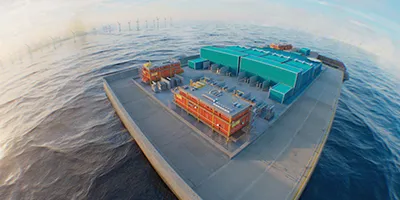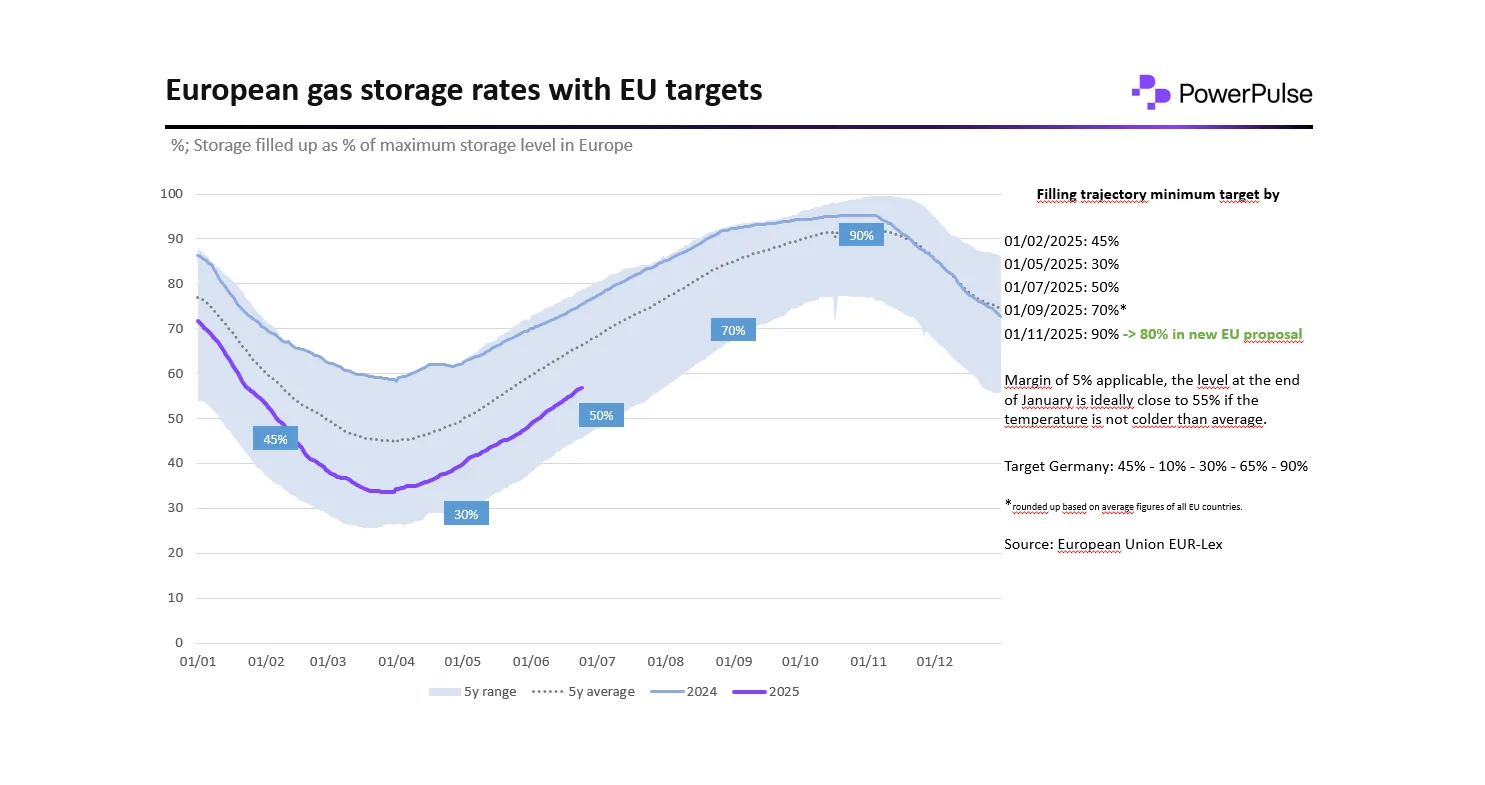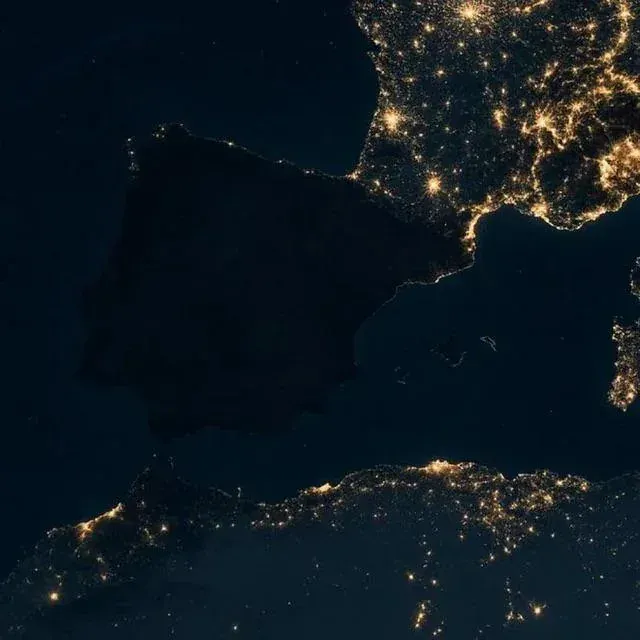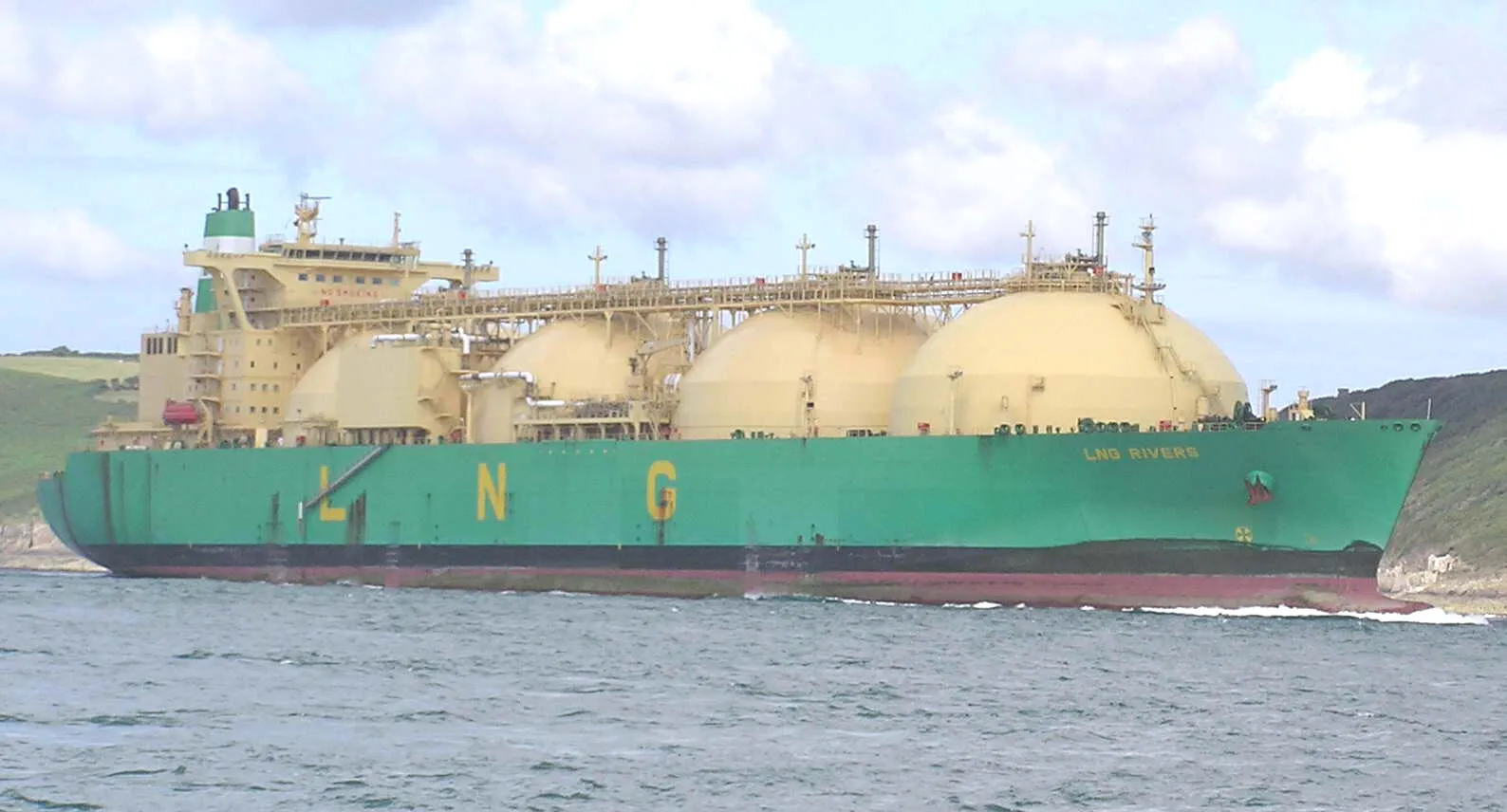
26 juni 2025
Energy News June 2025
A thorough review of the energy island for PEZ to avoid a tariff shock
The federal government has decided to remove the direct current (DC) component from the original project of the energy island linked to the Princess Elisabeth Zone offshore wind development, designed to connect future offshore wind farms in the North Sea and interconnect Belgium with the United Kingdom. The estimated cost rose from 2.2 billion to nearly 8 billion euros. This decision will enable savings of at least 3 billion euros. The construction of the energy island itself and of the alternating current (AC) infrastructure needed to connect the future offshore wind farms will be continued. The AC-infrastructure will enable the connection of two of the three lots of PEZ. A second DC-connection with the United Kingdom will be further investigated.

Europe eases the natural gas filling target
The European Parliament have adopted a draft law to address speculation on the gas market and bring down prices, by introducing greater flexibility in rules on gas storage refilling. Members of Parliament (MEPs) introduced several amendments to ease tensions in the gas market, as speculation surrounding the existing mandatory 90% fill rate target by 1 November each year was driving the cost of refilling during the summer. MEPs proposed a deviation of the filling target by 10% from the 90% goal, to be met at any point in time between 1 October and 1 December each year. Member states would be allowed to deviate by up to five percentage points from the filling target in the event of unfavourable market conditions, such as supply disruptions or high demand. Member states would however have to ensure that the cumulative effects of flexibilities and derogations do not bring down overall storage filling obligations below 75%.

Spain and Portugal encountered a black-out
On 28 April, the power systems of Spain and Portugal experienced a blackout. A small area in France, close to the border with Spain, was also affected for a limited duration. The remainder of the power system of Continental Europe did not experience any significant disturbance. Within 24 hours the power was completely restored.
Several causes were put forward, from cyber-attack over too much renewables to too little inertia in the grid. The first report by the Spanish governmental commission points rather to operational errors from the grid operator and energy producers. According to the energy minister, the immediate cause was excessive voltage on the grid, which resulted from frequency oscillations and ultimately led to a chain reaction of production disconnections. The grid operator, RED Eléctrica, allegedly deployed too few production units making it impossible to compensate for imbalances in voltage and vibrations. These production units showed a certain level of non-conformity where their contribution to voltage regulation was insufficient or even counterproductive. The grid operator and energy producers are pointing at each other to minimize the potential damage claims.
The full technical analysis is currently performed by ENTSO-E, who will publish his results by the end of October at the latest.

EU plans to end Russian gas and oil imports by 2027
The European Commission has proposed legislation to gradually end all imports of Russian gas and oil by the end of 2027, aiming to boost the EU’s energy independence, market stability, and competitiveness. The proposal includes to ban new Russian gas contracts from 1 January 2026, to end short-term contracts by 17 June 2026, to phase-out long-term contracts by end of 2027, and to stop Russian oil imports completely by 2027. The proposal now has to pass the trilogue process with the European Parliament and the Council. With this procedure, only a qualified majority is required in the Parliament instead of unanimity.
